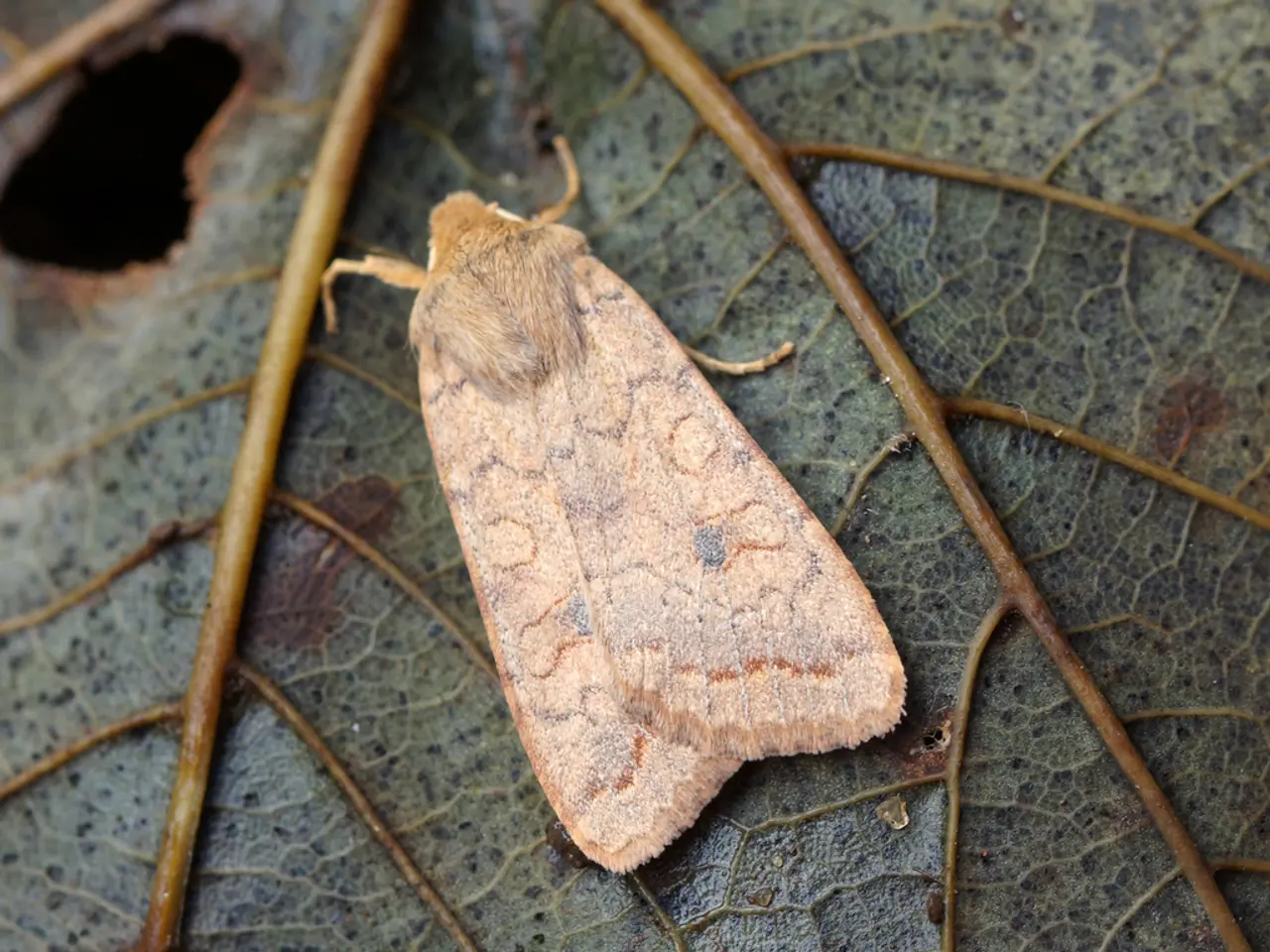Nighttime feeder, the vampiric triatomine bug (Triatoma sanguisuga), found among foliage. This stealthy bloodsucker transmits the Chagas disease to its victims.
The "kissing bug" disease, also known as Chagas disease, has gained increased attention due to its spread across the United States. This parasitic infection, caused by the Trypanosoma cruzi parasite and transmitted by the triatomine bug, also known as the "kissing bug," has been found in 32 states, from California to Maryland.
Chagas disease is considered endemic in the U.S., with confirmed human infections in eight states. The Centers for Disease Control and Prevention (CDC) estimates that about 280,000 people in the U.S. are currently living with the disease. Worldwide, approximately eight million people are affected, including those in Central and South America.
The "kissing bug" derives its name from its habit of biting around the mouth or eyes of a sleeping person, due to easily accessible and exposed skin. These nocturnal insects hide during the day, feeding on animal and human blood while the host sleeps.
Rodent nests, fox dens, armadillo burrows, and opossum latrines are particularly attractive to these bugs. Stacked firewood, nonfunctioning automobiles, bricks, blocks, and pipes can also provide nesting places for wild animals and attract North American kissing bugs. Preventing Chagas disease involves an integrative pest management strategy, including decluttering homes to prevent infestation by North American kissing bugs.
Chagas disease can enter a chronic phase, which is a "silent" infection where the parasites are hiding in the body, primarily in the heart or digestive muscles. If left untreated, the disease can cause lifelong heart problems and even death.
More attention and research are needed on the potential threat of Chagas disease transmitted by kissing bugs to humans. A 2023 study found that decluttering can help prevent North American kissing bugs from infesting a home. It's essential to raise awareness about Chagas disease and the measures necessary to prevent its spread.
In addition to humans, Chagas disease can infect various animals, including possums, dogs, ground-dwelling frogs, lizards, and humans in Florida. The disease can be transmitted through eating uncooked food containing stool from infected bugs, receiving infected blood or organ transplants, or being near infected wild animals.
As the number of Chagas disease cases in the U.S. continues to rise, it's crucial to educate the public about this potentially deadly parasitic infection and the steps they can take to protect themselves and their families.
Read also:
- Parliamentary Meetings in the Federal Diet of Germany this Week
- All individuals aged 75 and above to be incorporated in Respiratory Virus (RSV) prevention program, set to commence in September.
- Regulation Implementation Rules to be Established by the Commission for Enforcement Purposes
- Emergency services in Berlin are set to get a respite





